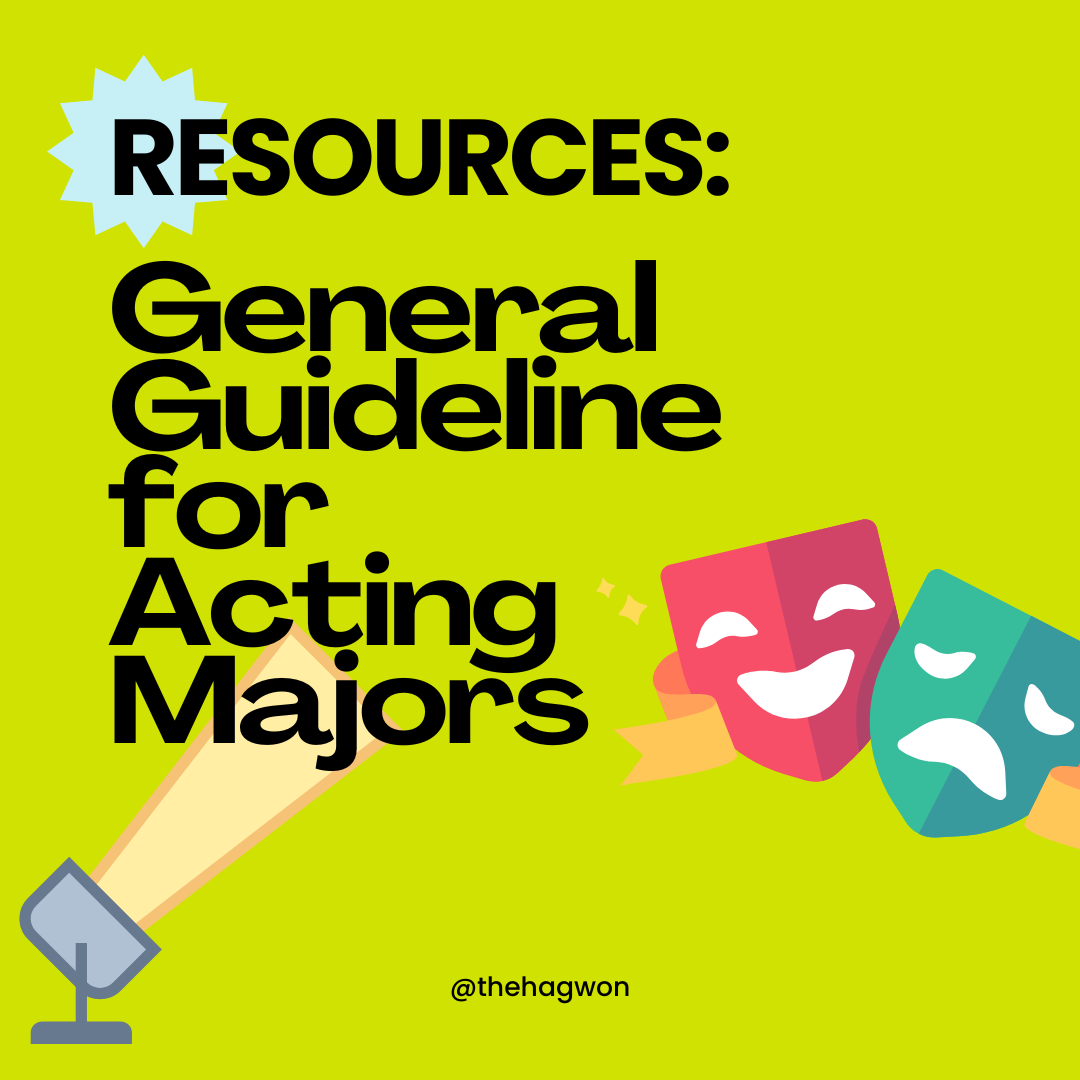Interested in applying as an aspiring acting major in college? Here are some general information regarding important deadlines, famous acting programs, and more!
Acting Schools - General Info
🗓️ The deadline for the acting schools tend to be early - ED is due Nov 1, and Regular can be due as early as mid November or December 1. Hence, it is important to organize the deadlines per each school and plan accordingly.
🏫Example: Carnegie Mellon University
College of Fine Arts - School of Drama - 4% acceptance rate.
College of Fine Arts Average Stats
GPA of 3.77
SAT-ERW 700-740, Math 730-780
ACT E - 34-35, ACT Math - 30-34, ACT C - 33-34
Must submit pre-screenings between Sept 1-Dec 1.
Materials: resume, headshot, 60-90 second monologues of contemporary after 1900 and one classical pre 1900.
Once audition scheduling opens on November 4, auditions fill on a first-come, first-served basis and are only available to invited Carnegie Mellon applicants who have successfully completed the pre-screen stage.
🎤Each school generally requires 2 monologues (1 classic and 1 contemporary) to be recorded & submitted, ranging from 60-90 seconds.
🖥️The platform used to upload the recorded videos is called Accept’d.
URL: https://getacceptd.com/
🖼️Headshot photo, resume, answer to basic questions are also required
🖌️Know the difference between BFA Program and BA Program
BFA stands for Bachelor of Fine Arts. It means that the school has trained you to do this professionally. Students have the skills and tools to embark in the acting/dance/theatre career. BA (Bachelor of Arts) in Theatre is a diversified degree program focusing on extensive training with additional background in theatre. The BA degree is designed to give students a comprehensive understanding of theatre while also perfecting their performance skills. There are more general education requirements to be fulfilled. ❓ Are schools with name value a better school? There is value in the alumni network after you graduate when you go auditioning. Coming from a bigger school naturally has a greater alumni network. There may be more opportunities in a larger department. However, in the end, it’s all about the ‘fit’ between the university and the student. 🏫 What is the difference between doing a conservatory (BFA, BA), or going to a comprehensive college? What are the advantages or disadvantages? In the spectrum of schools, one end is conservatory (e.g. Julliard) where it’s all theatre, dance, instruments with little to no outside of theatre academics. There will be very few general education courses.Conservatory is a particular type of school that attracts a real minority of students. They look for a high level of polish, where the student will master and perfect their classical craft in dance, theater, or music. Students applying to conservatory will most likely have a 1:1 private instructor from a very young age who is steering them towards conservatory.
On the other end, there is a general university of liberal arts school, where the focus is on general academics. It won’t have the intensity or immersive nature of conservatory training. In a general university, you’re balancing your academics and arts major. Like schools in the middle of the spectrum (e.g. Tisch or Emerson), students have 3 days of conservatory training and 2 days of academic training. Deciding whether you want to go to a conservatory or a general university depends on how certain the student is about pursuing an acting/performing career. Also, students and parents should be mindful that conservatories take so few people as well so it will be highly competitive.

